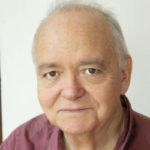ASIO and the AFP have questions to answer in the wake of reported raids on the homes and offices of Chinese journalists and a Labor backbencher.
On June 26 the Australian Federal Police raided the home and offices of NSW Labor backbencher Shaoquett Moselmane in Sydney.
Co-incidentally on the very same day, according to reports from Chinese news agency Xinhua, Australian intelligence agency staff raided the homes of four Chinese journalists in Australia, questioning them for several hours and removing their computers and mobile phones. The four worked for three Chinese news organisations
Asked about the raids on the journalists an ASIO spokesperson gave a response their Chinese-brother-agencies would be proud to deliver: “As is long-standing practice, ASIO does not comment on intelligence matters.”
Chinese authorities have proved equally opaque in the case of Cheng Lei, an Australian citizen employed by China’s English-language state broadcaster CGTN, who was detained last month. Finally they said earlier this week that she was “suspected of carrying out criminal activities endangering China’s national security.”
And in what might in some way be a related matter, after some speedy consular work and sensitive negotiations, two Australian journalists – the ABC’s Bill Birtles and the Australian Financial Review’s Michael Smith – were spirited out of China on Monday.
Until recently, Australia had a proud tradition of media freedom. But in recent years, in the name of national security, both the Coalition and Labor have supported new laws severely curtailing that freedom.
This freedom should not only apply to Australian journalists. It should also apply to foreign journalists living and working in Australia, including Chinese, Russian, Arabic, American, whoever.
If we want Australian journalists to be free of restrictions in China and report without fear or favour, ideally Chinese journalists working as genuine journalists -not spies – should equally be free to travel, interview, debate, probe, expose and argue their point of view. However, government ownership of the Chinese media makes it hard for its journalists to report independently.
Although we do not know — because ASIO will not tell us — there is some suggestion that the Chinese journalists who have been raided were in contact with John Zhang, who Moselmane employed one day a week to translate some of his speeches into Chinese for local Chinese voters.
The raid on Moselmane was conducted on behalf of the Countering Foreign Interference Taskforce, with an ASIO officer reported to have been leading the investigation. Mr Zhang has lodged a High Court challenge to the AFP and ASIO investigation into his alleged participation in Chinese foreign interference.
The Australian Federal police warrant for separate raids on Zhang’s home and offices seems to support Moselmane’s statement that he had done nothing wrong. The warrant states that Zhang failed to “disclose” to Moselmane that he was allegedly acting in collaboration with Chinese security officials. If so this would support Moselmane’s claims that he knew nothing of Zhang’s alleged activities and has been smeared by the media and politicians.
The ABC reported on Wednesday evening that that the Australian government had cancelled the visas of two Chinese scholars in Australia, Professor Chen Hong and Li Jianjun. Chen told the ABC, “A gross mistake has been made regarding my relationship with Australia”.
If it is correct that raids on Moselmane and the four Chinese journalists took place on June 26, this is open to the interpretation that these actions provoked the Chinese into retaliating by detaining the Australian journalist Cheng Lei and trying to stop Birtles and Smith leaving the country.
In this case, Australian intelligence agencies could be seen as contributing to the present situation in which Australian-Chinese relations have reached rock bottom. In the wake of this harmful outcome, the agencies should be required to publicly justify their actions, particularly in regard to Moselmane.





